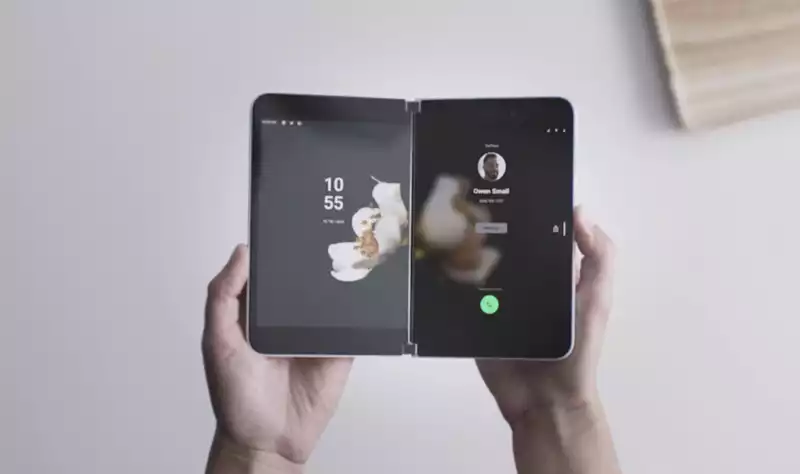Microsoft's dual-screen Surface Neo and Surface Duo devices are expected to arrive in fall 2020, but Redmond engineers may be planning a triple-display device to follow suit.
This is the impression we get from the latest patent filing by Microsoft (via Windows Latest), which shows a foldable device that looks a lot like the Surface Duo, but with a third mini-display added to the mix. This elongated screen sits on a hinge that separates the two regular screens on either side.
According to the patent, Microsoft believes such a display could be used as a way to fill the gap between the two screens and present the device as one continuous screen when fully opened.
Another function of the mini-screen would be to display notifications, user interface elements, bookmarks, and other controls, like the Touch Bar found on MacBook Pro laptops. [The gap caused by the hinge connecting the two displays on the Surface Neo and Surface Duo is quite slim as it is. However, adding a screen over the hinge would completely eliminate that gap, while at the same time eliminating the warping and wear concerns that plague foldable displays like Samsung's Galaxy Fold.
But to make this happen, Microsoft would need to employ clever engineering. Not only does mounting a mini-display on a hinge require a certain amount of creativity, but Microsoft also needs to ensure that the device is equipped with sufficient processing power.
Microsoft would also need the right software cleverness to allow the screen to dynamically adjust from the notification bar and neatly fill in the missing space between the two main displays.
Microsoft is already working on a custom version of Windows 10 called Windows 10X that will retool the company's operating system to work specifically with foldable dual-screen devices. surface Duo Microsoft is also working on a heavily customized version of Android to bring a Windows-like experience to Google's mobile OS. In short, Microsoft already seems to be laying the groundwork to tackle the pesky multi-screen challenge.
Microsoft has also already demonstrated the technology to create well-designed hardware, such as the Microsoft Surface Laptop 3 and the upcoming Xbox Series X, which pack a lot of power into a relatively small package. So while Microsoft is in a good position to take this patent from the idea board to reality, we won't see such a device until at least 2021.










Comments